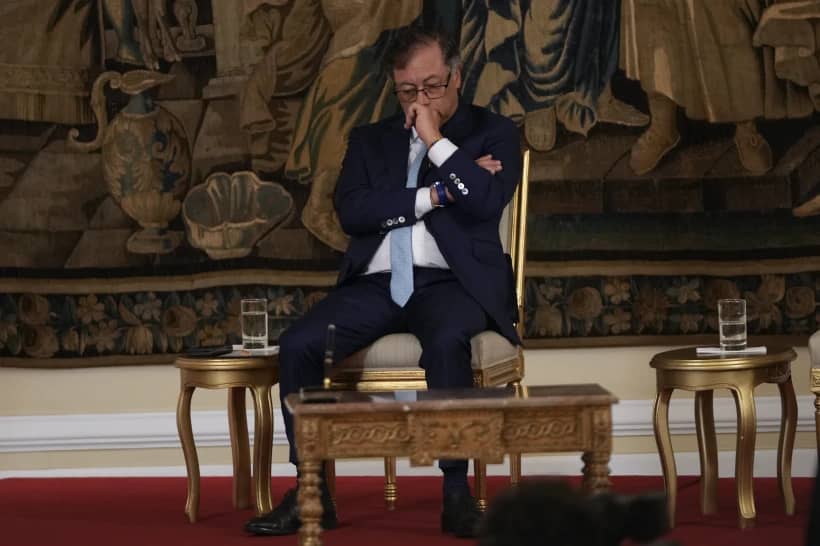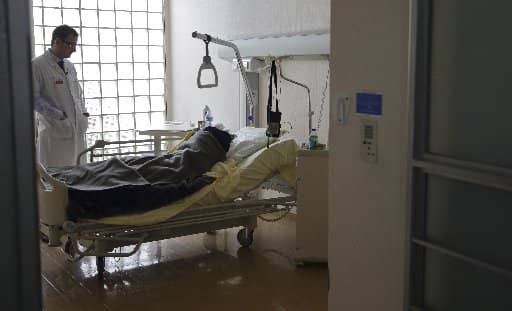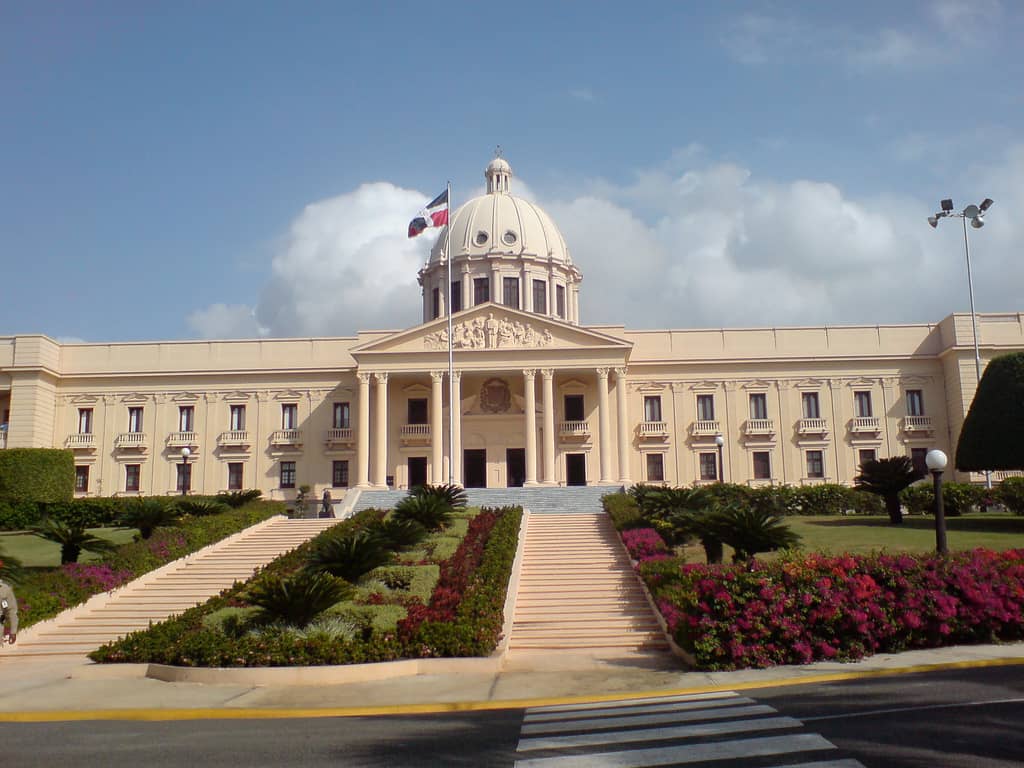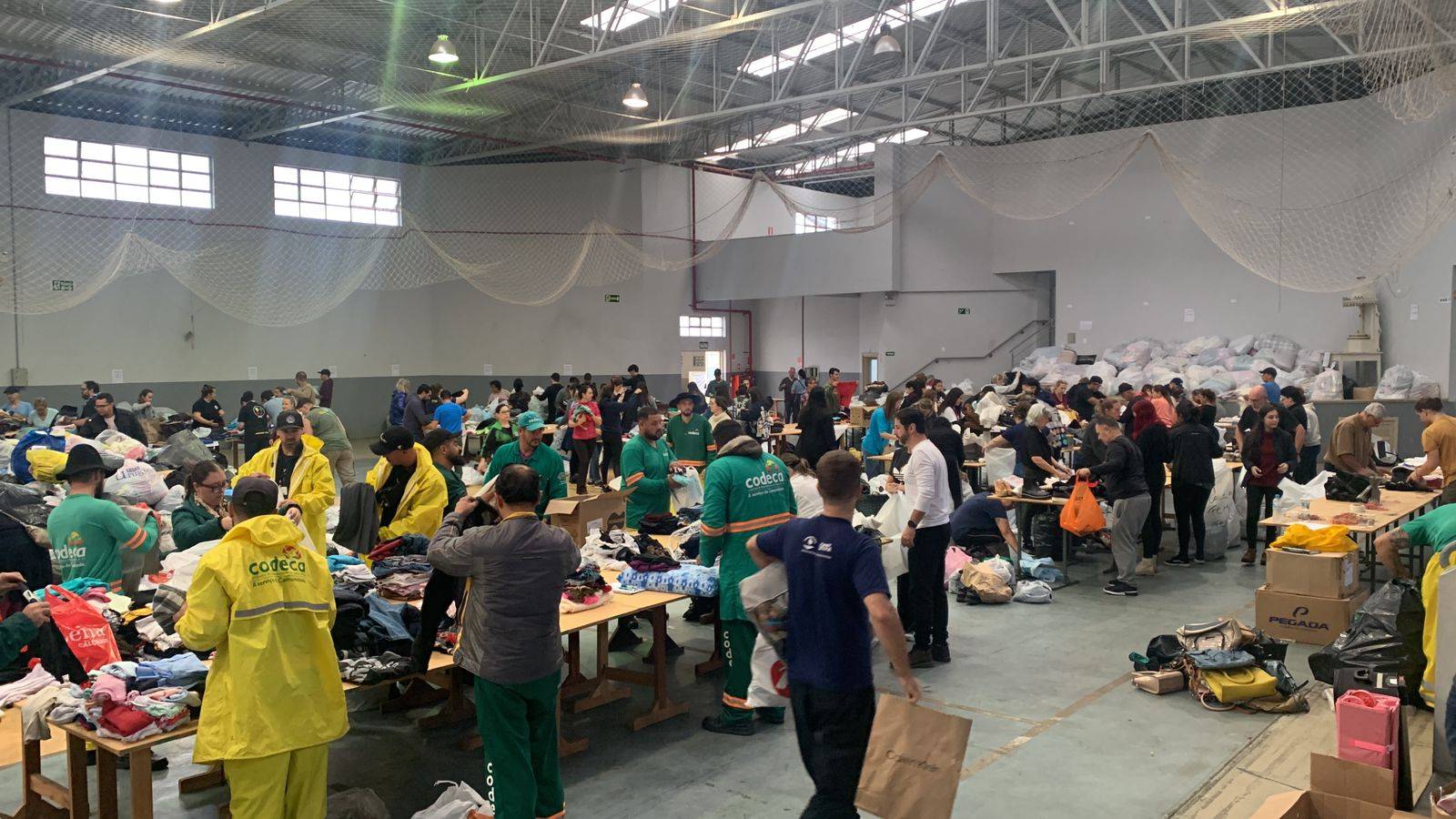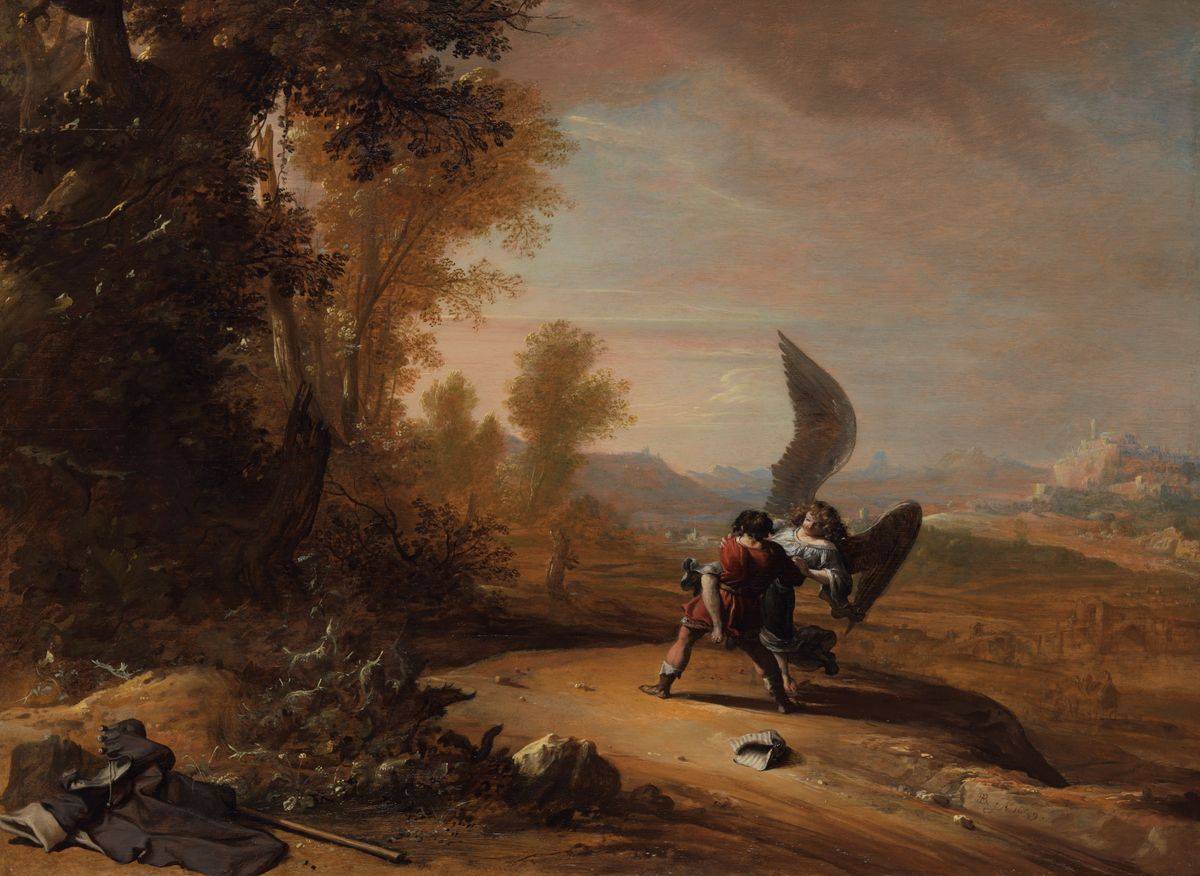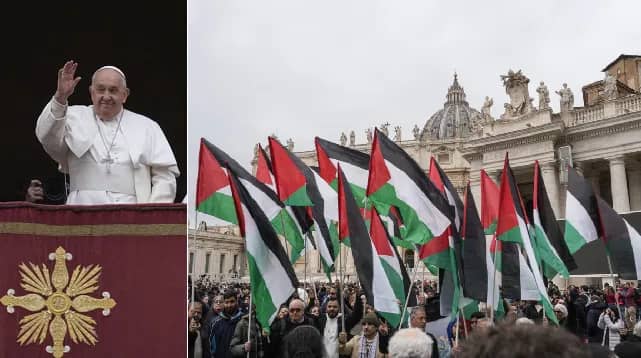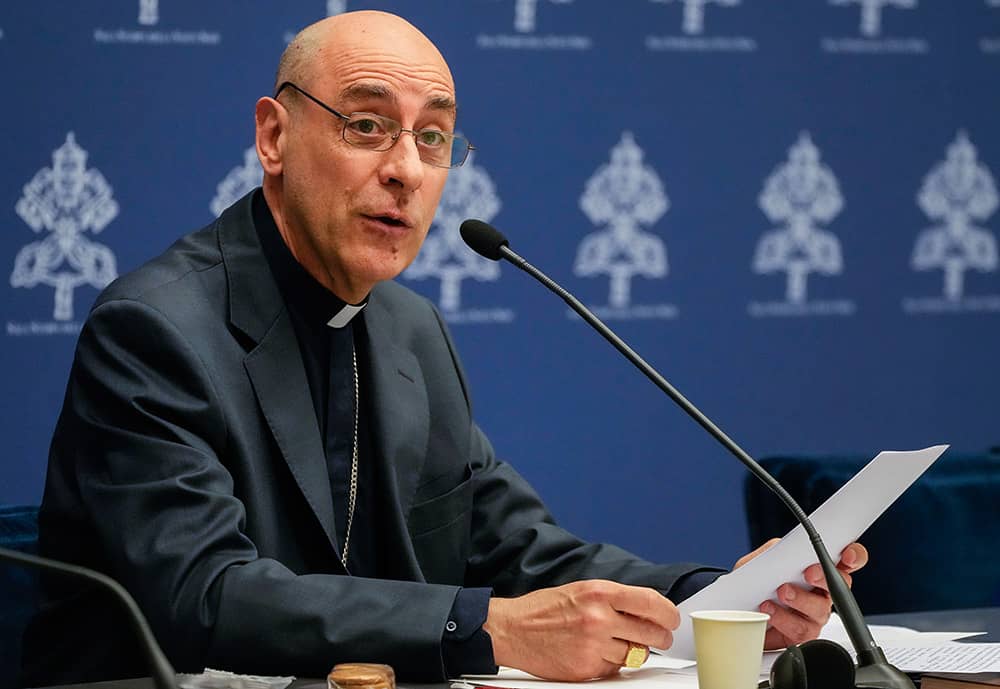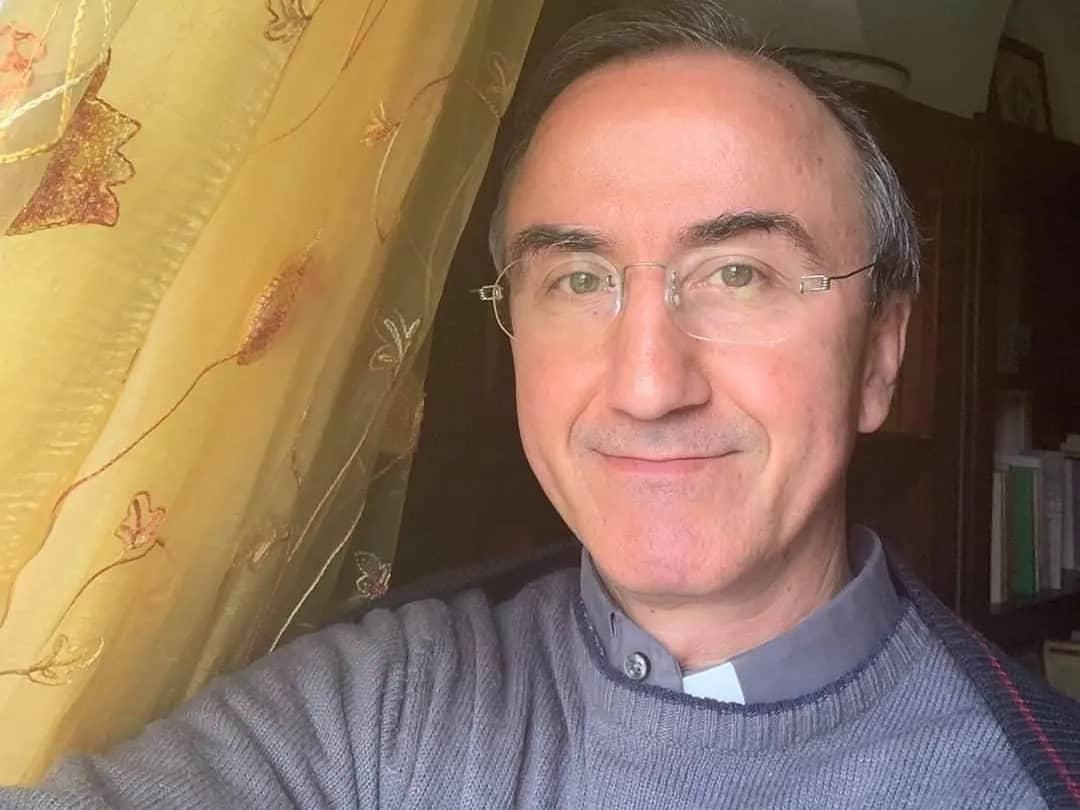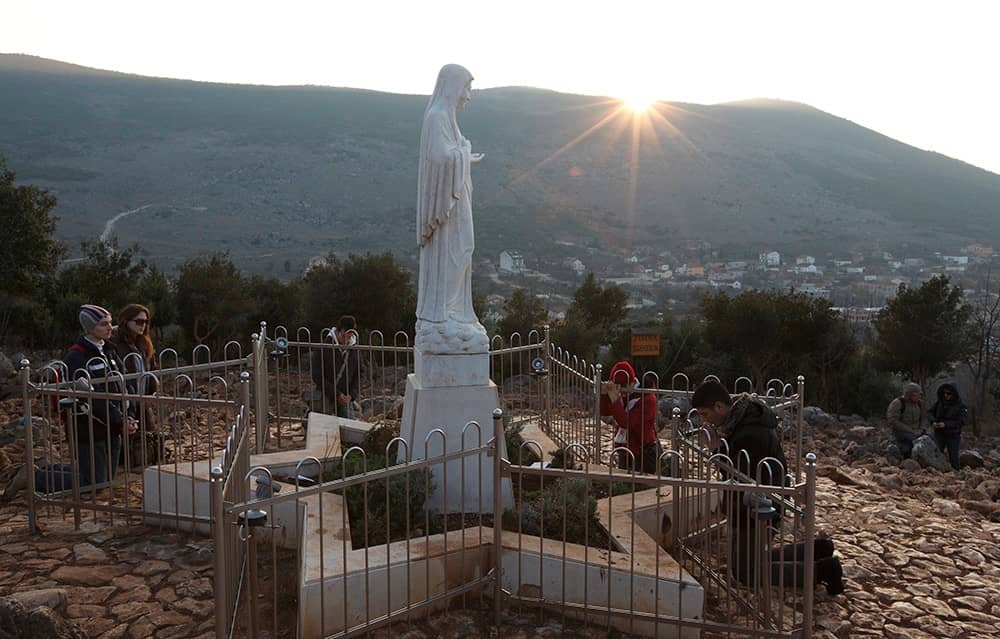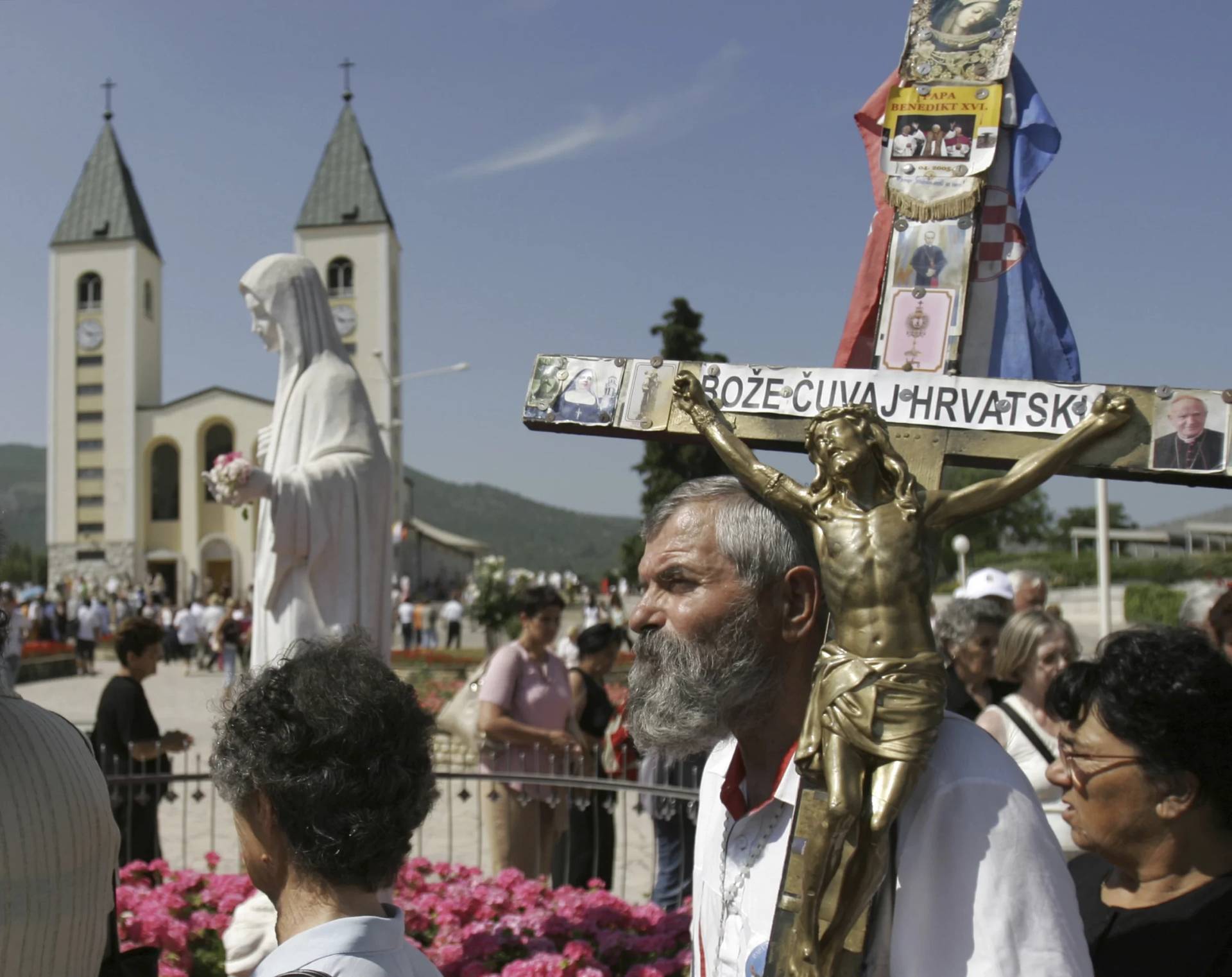ROME – A lawyer representing a Catholic group with ties to a scandal-ridden lay community in Peru has responded to a Crux report on a dispute between their organization and a group of peasant farmers who claim to be threatened and legally harassed by the organization.
Last weekend, a group of peasants from a farming community in Catacaos, Piura, were received by the Archbishop of Lima, Carlos Castillo, after a special Mass in the city’s cathedral, during which he gave them a special shout-out and blessing, “so that in their fight and their efforts, justice can be achieved for their cause, and also for those who have helped them.”
Castillo’s meeting with three members of the group – Fiorella Martinez, Marcelino Ynga and Santos Maza – came several days after Pope Francis recorded a short video voicing support for the Catacaos community amid an ongoing dispute with organizations associated with the Sodalicio Christianae Vitae (SCV), a lay Catholic movement facing allegations of various kinds of abuse and whose founder, layman Luis Fernando Figari, was sanctioned by the Vatican in 2017 for the sexual abuse of minors and for abuses of power and authority.
RELATED: Pope lends support to Peru farmers claiming harassment by Catholic group
Since 2012, farmers from Catacaos have battled legal suits and what they have said are consistent threats from companies associated with the SCV, including the Saint John the Baptist Civil Association (ACSJB), who wish to buy up the land they occupy and drive them out in order to develop it for profit.
It is common throughout much of Latin America for peasants and members of the poorer classes to establish roots on a patch of inexpensive land and live there undisturbed for decades, or even hundreds of years, while having no formal title to the land on which they live, usually due to a lack of money or legal support.
Companies who want to buy up the land will often strike a deal with the titleholder and effectively run the inhabitants out of town through threats and intimidation, at times resorting to violence carried out by criminal groups.
In an April 30 letter printed on official letterhead for the ACSJB, the organization’s lawyer, Percy García Cavero, issued four “clarifications” to an April 30 Crux report titled, “Peru farmers meet Lima archbishop amid dispute with Catholic group,” denying allegations that they had threatened or were harassing the farmers.
RELATED: Peru farmers meet Lima archbishop amid dispute with Catholic group
Referring to an official statement they published after the pope’s video came out, García Cavero said the statement was “an effort to make our position transparent in the face of accusations without evidence that have been initiated by this group of people led by Mr. Marcelino Ynga,” who is the leader of the Catacaos farming community.
“The information that we presented is supported by evidentiary documents, and does not have the slightest hint of threat or intimidation to anyone,” he said.
García Cavero also responded to claims made by Ynga in a video published on social media accusing organizations affiliated with the SCV of trying to steal their land, saying the ACSJB has published its own “fact-checking video” on YouTube responding to Ynga’s claims, which they characterized as “defamatory.”
García Cavero denied claims of legal harassment made by several members of the Catacaos community, including Ynga and Santos, who said that between 10-20 members of their community have received formal legal complaints from organizations affiliated with the SCV, including the ACSJB.
“We want to assure you that the legal action taken by our association has strictly followed proper legal procedures and does not constitute harassment,” García Cavero said, saying it is “to distinguish between the legitimate exercise of rights within a legal framework and accusations of harassment that are not based on concrete evidence.”
He also denied any involvement in the death of Guadalupe Zapata Sosa, a member of the Catacaos community killed in December 2011, and whose wife, Fiorella Martinez, was among those who met with Castillo last weekend, claiming she was seeking justice for her husband’s death.
Zapata Sosa was killed shortly before the ACSJB took possession of the land. García Cavero denied any involvement by the organization, citing a previous investigation in which Zapata Sosa’s death was associated with an “invasion” from other families.
“It is clear, therefore, that the ACSJB had no relationship or connection with this fatal incident, nor did any member of its staff,” García Cavero said.
He insisted that the purchase of the plot of land on which the Catacaos farming community is located was done legally, “through a contract with the then legitimate owners, who were registered in public records” at the time.
“This ensures that the acquisition by the ACSJB was completely legitimate and in accordance with Peruvian laws, with all transactions and ownership changes duly documented and publicly accessible through SUNARP,” García Cavero said, insisting that “there was no usurpation or illegal acquisition of the land by the ACSJB.”
In addition to representing the ACSJB, García Cavero also serves as legal representative for Peruvian Archbishop José Antonio Eguren, a member of the SCV who last month resigned from leadership of the Piura archdiocese amid an ongoing Vatican investigation into the SCV.
In 2018, García Cavero on behalf of Eguren lodged a criminal defamation complaint against journalist Pedro Salinas, who three years prior had coauthored a book unveiling scandals inside of the SCV alongside fellow journalist Paola Ugaz.
Eguren eventually dropped the case after Salinas was convicted, after facing broad public and ecclesial backlash, including from the Peruvian bishops’ conference.
García Cavero in comments to Crux specified that in this case, Eguren “did not recant, but having obtained a favorable ruling in the first instance, he gave up continuing with the process, which is equivalent to a pardon for the offended party.”
In 2019, García Cavero authored a book on the case titled, The Case of Pedro Salinas, accusing Salinas and his legal team of using media to spin facts and sway public and judicial opinion.
He told Crux at the time that he wrote the book as a study on “excesses in the use of freedom of expression by journalists” and how public opinion of information can put pressure on judges, insisting that “Mr. Salinas and his defense said in the media so many affirmations contrary to the truth that the book is an opportunity of balancing information.”
Currently, García Cavero said he is representing Eguren in another legal battle against Ugaz for an investigation in which she accused him of money laundering, insisting that until now, Ugaz “has not gone to testify as a witness to the Prosecutor’s Office, despite having been summoned on two occasions.”
He also said that in the past his law firm defended another journalist who claims to have suffered legal harassment by the SCV, Daniel Yovera, and that his firm has also worked jointly with Salinas on certain court cases, in Salinas’s capacity as a partner of the Chisac communications company, though he did not specify who from his firm assisted in these cases.
García Cavero explained that, as expressed in a previous statement from the ACSJB, the company has sent documentation to the apostolic nunciature in Peru they say proves they have never been involved in any illegal action or expropriation of lands.
In terms of Castillo’s welcome of the Catacaos farmers and his words of support, García Cavero wondered whether Castillo “has listened to our position and our evidence,” saying thus far, the archbishop “has never asked us for any information on the subject, much less has he called us to an audience so that we can explain our position.”
A lawyer for the Catacaos community, Carlos Rodriguez, told Crux that at least 30 legal complaints have been lodged against members of the Catacaos community by organizations affiliated with the SCV, including the ACSJB, for various crimes, including terrorism.
However, he said there are currently no outstanding lawsuits against the farmers by SCV affiliates.
Rodriguez said there is one outstanding request to evict 10 of the farmers by the ACSJB, and that a ruling was made in 2019 in favor of the ACSJB. Rodriguez said he has appealed that decision, but the case was handed to a different judge, and he is still waiting for a response to that appeal.
In his comments to Crux, García Cavero said that land currently “does not belong to the ACSJB” and that he “could not respond” as to whether there’s an eviction lawsuit underway.
He said the ACSJB “has not initiated legal proceedings or complaints of harassment” against the Catacaos community, and that complaints made against two families in 2012 were for “coercion and aggravated damages,” as the families were accused of destroying the fence of a property owned by the ACSJB.
García Cavero said delays related to El Niño and the COVID-19 pandemic stalled the process and resulted in the case being archived, as the crimes had expired, insisting that the families “were never acquitted of criminal charges.”
Other legal charges against three members of the Catacaos community, including Ynga, he said, were made by a different company, Santa Regina, for which he also served as legal counsel. The charges were for usurpation of land, damage to machinery and water wells, and shooting at the company’s tractors.
However, he said that in 2018 Santa Regina was purchased by foreign investors, so his role as counsel ended and the new owners opted to drop the case “for strictly corporate reasons.”
García Cavero also said that Ynga has filed his own complaints against the ACSJB – for stealing livestock in 2014, for illegally felling trees in 2015, and for deforestation in 2017 – and that each of these cases were dropped by the prosecutor’s office.







